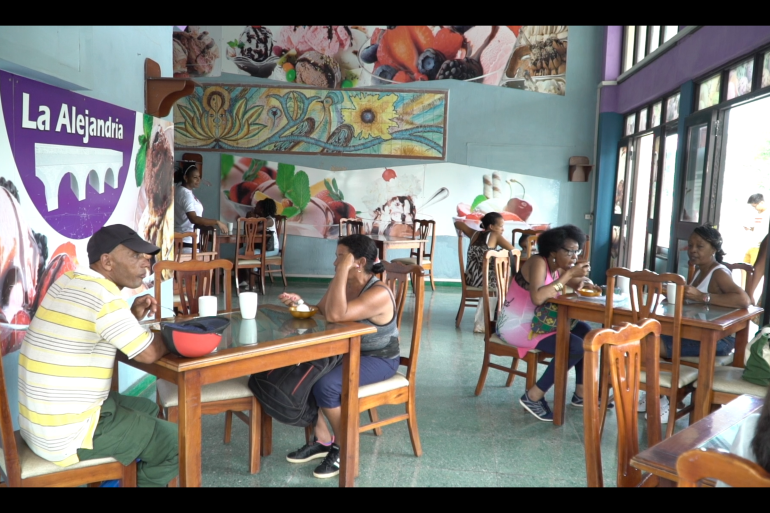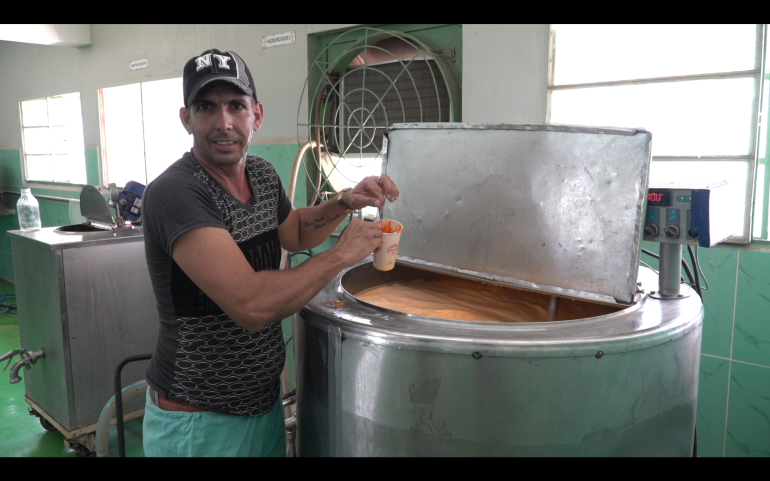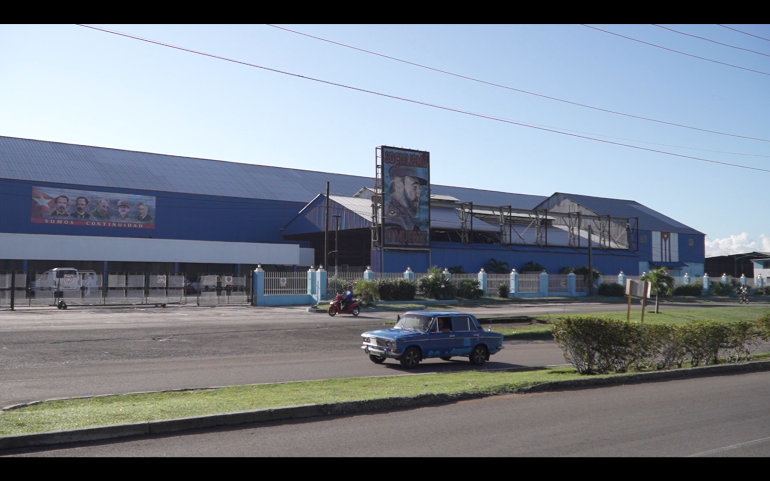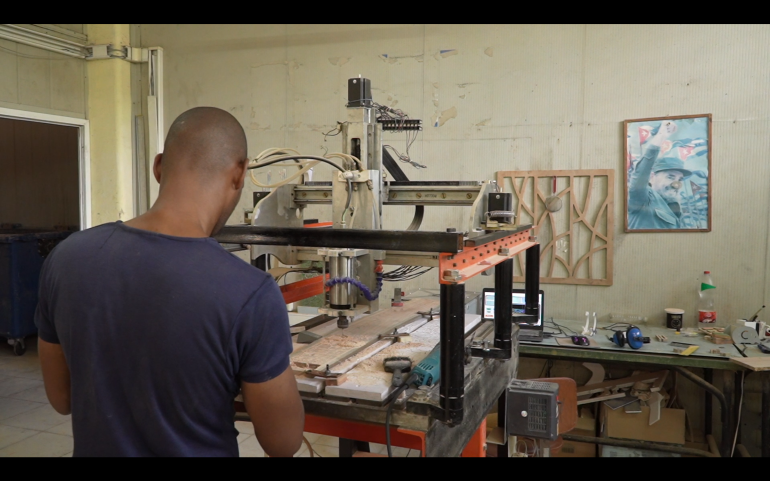As Cuba’s private sector roars back, choices and inequality rise
Even as more small businesses have popped up across the island, some simply can’t afford what’s on sale.

Güines, Mayabeque – “Capitalism must be uprooted, parasitism must be uprooted, the exploitation of man must be uprooted,” cried Fidel Castro in 1968 to rapturous applause, explaining his decision to ban virtually all private business in Cuba.
For Castro, the fundamental problem was that capitalists live off the work of others – creating “man as the enemy of man” rather than an “instinct for solidarity” among people.
Keep reading
list of 4 itemsUS, China to work ‘intensively’ on climate issues in weeks ahead
New Zealand vs Norway preview: Co-hosts relish ‘time to shine’
US athletes allege hazing abuse at Northwestern University
Now, more than half a century later – and after decades of anguished debate – the Communist Party of Cuba is allowing private businesses to spring up on the island. Since 2021, Cubans have been able to incorporate small and medium-sized businesses which can employ up to 100 people. More than 8,000 have already been registered.
The private sector is roaring back, bringing with it more productivity but also more inequality to the island nation.
Roberto Rojas, who has a portrait of Fidel Castro in his office, incorporated Rojas Dairy 18 months ago in the town of Güines in Western Cuba. Today, his company employs 28 people to make yoghurt and ice cream and unlike the former commandante, he sees no contradiction between a socialist state and private business.
“On the contrary,” he told Al Jazeera. “We have examples in the world: Vietnam and China – they have sustainable economies.”
Rojas Dairy is something of a poster child of young, innovative, socially-responsible businesses. It pasteurises milk in large metal vats that Rojas found in a rubbish tip and mended. The factory is based in an old state canteen that had fallen into disrepair before Rojas gave it a lick of paint and started renting it.
Crucially, for a cash-strapped country in which putting a decent meal on the table has become a harder task in recent years, the business produces food.
Milk is bought from the state, while cocoa, stabiliser and colouring are imported from abroad. Townspeople come with their own bottles and containers to fill up with yoghurt they can just about afford. And thanks to local production, the town’s ice cream parlour, which had been shuttered for a decade, has recently opened again.

Rojas’ employees have a spring in their step and are earning handsome salaries.
“The difference is enormous,” said Jakcel Conteras, a former vet’s assistant who is now one of hundreds of thousands of Cubans working in the private sector. “When I worked for the state, I earned 800 to 900 pesos a month, now I earn between 10,000 and 15,000 pesos a month.”
Other small businesses have recently popped up around the town’s centre: mainly kiosks selling imported goods like cooking oil, toilet paper and detergent. Some locals seem pleased with the extra choice.
“It’s the best thing they’ve ever done,” Luís Alberto Rodríguez said of the government while out shopping with his bike. Private businesses are “where you can find the most products – the [state] stores are practically empty”.
Others complain they simply cannot afford what is on sale. Most workers earn state salaries, which are paid in low-value pesos – when converted, the average salary works out to about $21 – while the private sector imports products using hard currency.
Private sector expansion

Expanding the private sector has been on the Communist Party of Cuba’s agenda for well more than a decade but the government has been extremely slow in implementing its programme. Raúl Castro, president from 2006 to 2018, tried to push through changes but was met with resistance among the country’s leadership and bureaucracy.
Perhaps, as Marxists, in their heart of hearts, they believe that wage labour for a capitalist class really is exploitative. Perhaps they were reluctant to go the way of communist-ruled China where, four decades on from Deng Xiaoping’s reforms, a chasm separates rich and poor. Perhaps it was a worry that private businesses would create a new class of owners who would soon be making challenging political demands.
Whatever the reason, enough people in powerful places could not let go of what Raúl Castro called “the old mentality”. There was, to borrow a term from the political scientist William LeoGrande, a “fragility of the consensus around the reform project”, which prevented forward movement.
That changed a few years ago. The one-two punch of ratcheted-up economic warfare from the United States and the pandemic, which shuttered tourism, seems to have acted as a catalyst.
Since 2020, the state has not had enough money to supply the population with the basic goods it needs and everyday Cubans have had to get used to standing in line for long hours to get food. In this context, the private sector is boosting supply and is on course to import $1bn of goods this year.
The rapid growth of the private sector is such a significant transformation of the economy that it inevitably throws up new problems. Chief among those is inequality, which is increasing.
Cuba, an island that for the last 60 years has emphasised social justice and still remains one of the most equal countries in the Americas, has become a country in which salaries in successful new private businesses are many multiples of what people can earn in government jobs.
‘Brain drain’

The Communist Party wants to keep the state acting as the “fundamental economic actor”. To this end, it has decided to keep professionals – doctors, lawyers, architects – working for the state and prevents them from opening private practices. But this has created a bizarre situation where jobs that require qualifications often pay less than jobs that require none.
“There’s a little bit of a concern about brain drain,” said Emily Morris, a development economist at University College London. “The new private sector seems to be sucking people out of the state sector in some cases, taking people away from the state sector who are very well qualified and, in some cases, to do things which require less qualifications but earn more money.”
The flight of talent from the state to the private sector also comes at a time when the island has been rumbled by record-breaking emigration as many young people who do not see a future in the country chose to leave. Last year, more than 2 percent of the island’s entire population emigrated to just one country: the US.
“It’s a serious problem,” said William LeoGrande, a professor of government at American University in Washington. “It means there’s a shortage of competent people running the state. That means vacancies in key positions that are hard to fill. And it means, in all likelihood, a deterioration in the quality of services the state delivers to the population.”
Still, while cognisant of the problems, entrepreneurs see further expansion of the private sector as the only game in town.
As he walks around the workshop of his company Rutami, which makes didactic wooden toys, Yulian Granados exudes excitement when talking about his plans. Amid swirls of sawdust as machines carve wooden blocks, he talks of how “gratifying” he finds working for himself, unencumbered by state hierarchies and excessive bureaucracy.
The private sector, he believes, should never have been done away with and is now essential to Cuba’s future. “There are opportunities wherever you look,” he beamed. “If you want to produce a product, there is hardly any competition. So there are plenty of market niches to attack.”